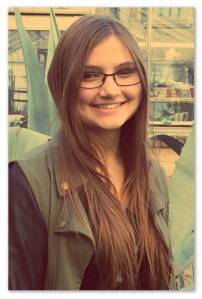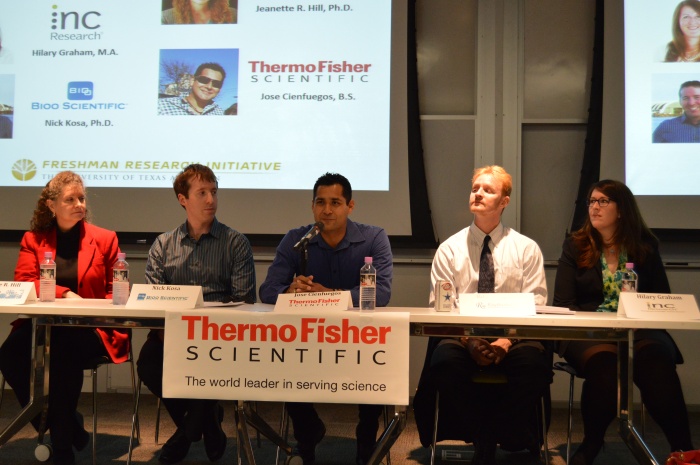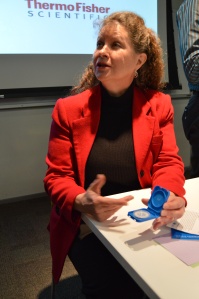Two FRI students were selected to participate in the Exceptional Research Opportunities Program (EXROP) for summer 2015.
EXROP is sponsored by the Howard Hughes Medical Institute (HHMI), a long term supporter of the FRI. The program allows student researchers to do ten weeks of full-time research with one of approximately 125 HHMI scientists over the summer, for a stipend of $5,000.
The main aim of EXROP is to provide opportunities for diverse, disadvantaged and underrepresented students to participate in cutting edge research over the summer. The HHMI hopes to inspire students even after their summer experience to “pursue careers in academic science” and form a “highly trained workforce” in the sciences. Like the FRI, the HHMI is helping to develop the next generation of scientists and leaders.
Lindsey Wilson, a second year Cell and Molecular Biology major, worked with her Research Educator Dr. Tony Gonzalez in the Epidermal Cell Fates and Pathways stream, led by Dr. Alan Lloyd, where she was a student and currently mentors under a Tejas Club Scholarship.
Wilson will be working with Dr. Keiko Torii at the University of Washington in Seattle, who researches intercellular communication between plant cells undergoing organ morphogenesis. As a student and mentor in her stream Wilson did independent research on pigment gene regulation in Arabidopsis, a small flowering plant, by looking at the TTG2 transcription factor. She’ll be presenting her research at the Undergraduate Research Forum this April. After earning her undergraduate degree, Wilson intends to pursue a graduate degree and career in genetics and developmental molecular biology.
 Aliyah Encarnacion is a sophomore Neuroscience major who works with Research Educators Dr. Grace Choy and Dr. Soo-Hyun Yang in the Biobricks for Molecular Machines stream, headed by Dr. Karen Browning and Dr. Ilya Finkelstein.
Aliyah Encarnacion is a sophomore Neuroscience major who works with Research Educators Dr. Grace Choy and Dr. Soo-Hyun Yang in the Biobricks for Molecular Machines stream, headed by Dr. Karen Browning and Dr. Ilya Finkelstein.
Encarnation started her research career at UTSA, testing the effects of anti-depressants on rodents. She’s also worked with the labs of Dr. Mauk and Dr. Drew from the center for learning and memory departments, with in vivo cerebellar eyelid conditioning in rabbits and acquisition and extinction of fear conditioning in mice, respectively. The Biobricks stream is focused on cloning specific DNA templates and protein expression for the Plant Biology lab of Dr. Browning.
Aliyah will work with Dr. Karel Svoboda at the Janelia research campus in Virginia over the summer of 2015. Dr. Svoboda specializes neuroscience, researching intercellular communication in the brain as a memory is being transferred from short to long-term memory. Dr. Svoboda won the European Brain Research Foundation Brain prize for helping to develop two-photon microscopy, which allows better imaging of neural anatomy and communication.
Both students will attend a meeting in Chevy Chase, Maryland this May to meet their instructors and former EXROP participants.
Kate Thackrey
UT Journalism Student


